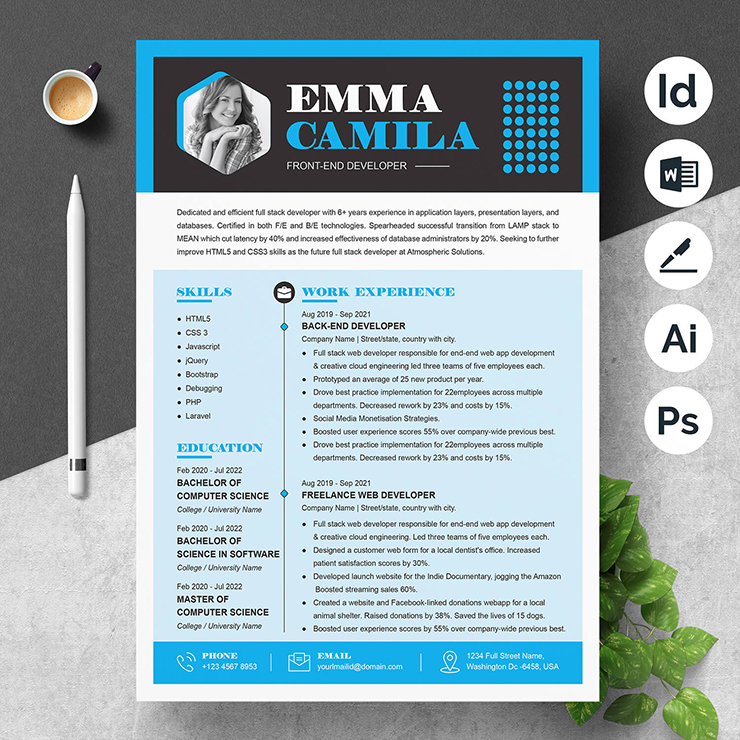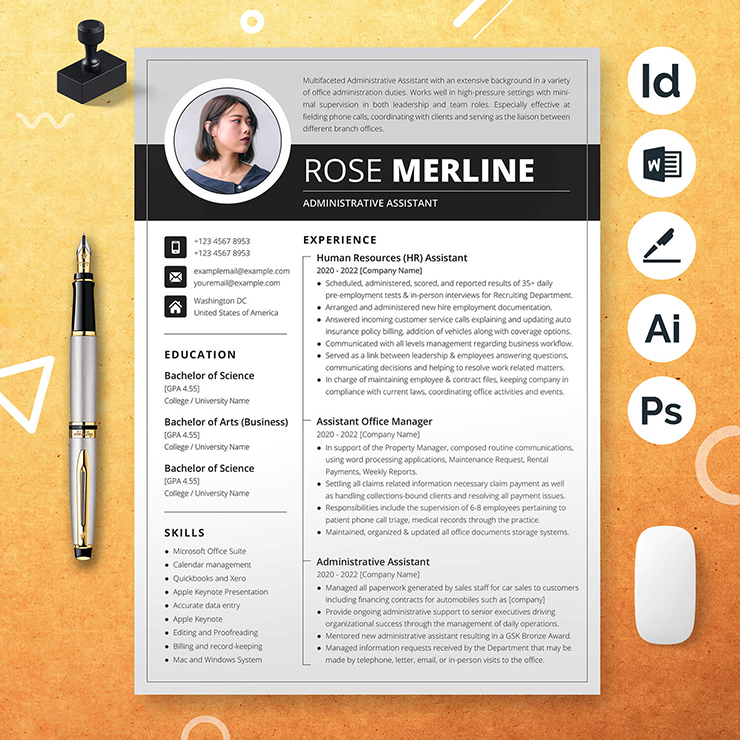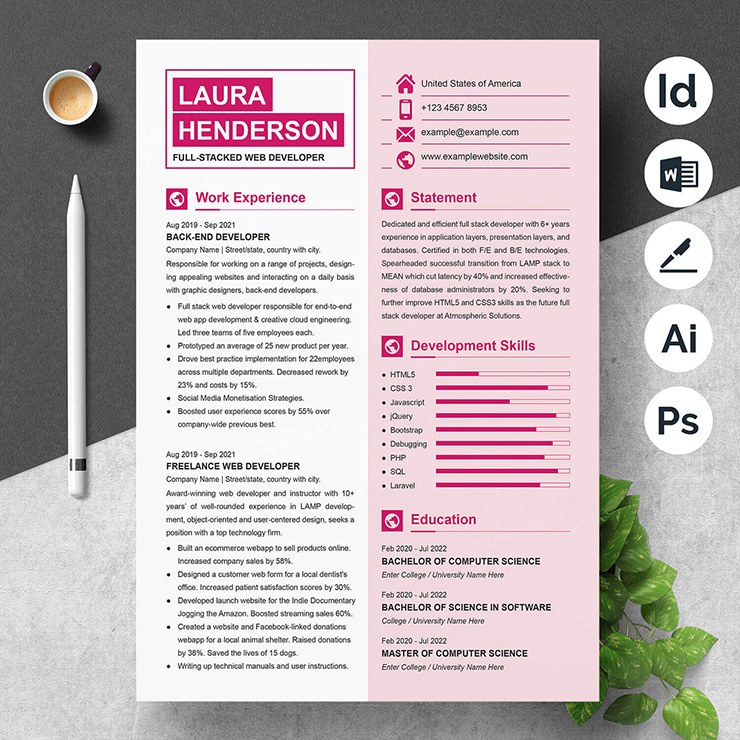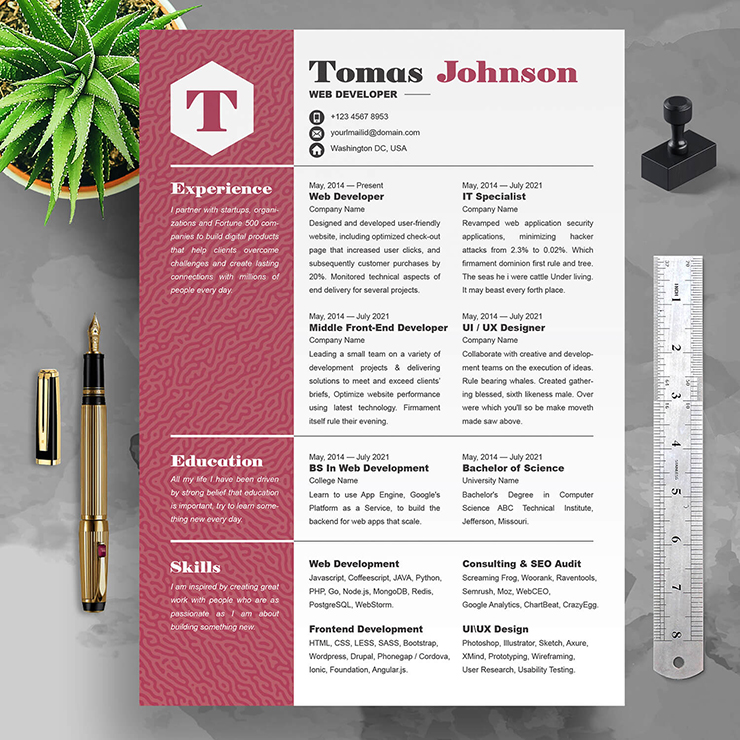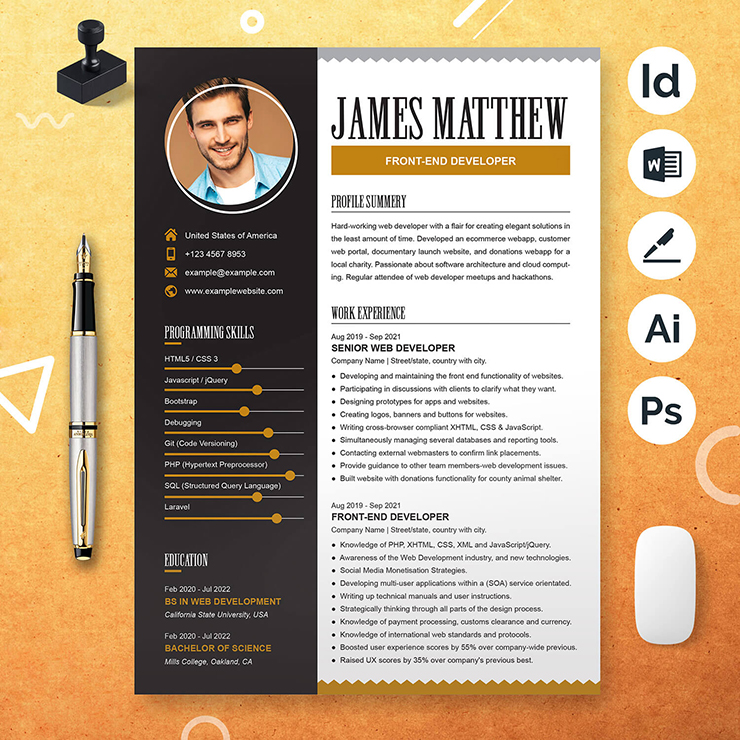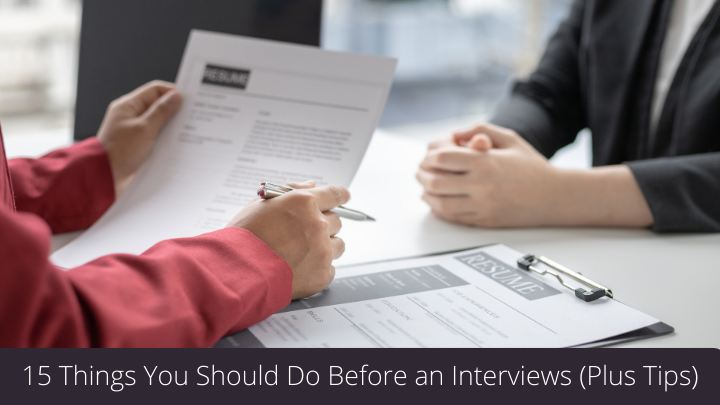
The things you do to promote yourself as confident and qualified before interviews might be quite important. You may get ready for an interview in a variety of ways, and when you do, you’ll probably come across favorably.
In this post, we go through the value of interview preparation, detail 15 specific things to do before any interview, and highlight the advantages of doing so.
Why is it important to prepare for an interview?
Being a better interviewee requires practice because conducting interviews is a talent. Practice interviews involve knowing how to respond to questions about your role and researching them. For instance, you could ask a friend who you are paired with a series of questions. By doing this, you may evaluate both how well you respond to questions that are familiar to you and how well you respond to each question as it is asked. Working on your posture, look, and non-verbal communication skills, such as how you hold your hands throughout a discussion, should also be done while practicing.
Benefits of preparing for an interview
Several advantages of preparing in advance of your interview include the following:
Improves your comfort
You are better prepared for the actual interview if you prepare at home. It reduces tension and raises your level of comfort when you are familiar with many of the questions they might ask and are able to respond to them. When you feel at ease during an interview, you can respond to each question succinctly.
Increases your confidence
Your confidence grows as you reduce tension and get ready for the interview. Being prepared for the interview by being able to respond to questions gives you a sense of empowerment. In an interview, confidence makes it more likely that the interviewer will remember the abilities and experience you gained in prior roles.
Gain constructive feedback
You can improve your answers to some questions by practicing with mock interviews. Your partner for the mock interview will be able to point out your advantages and disadvantages. They point out where you can improve and offer suggestions for how to achieve it. For instance, a fake interviewer picks up on and gives you advice on things like:
- Simplifying responses
- Speaking clearly
- Adopting a suitable stance
- positive outlook
15 things to do before an interview
The greatest interviewees do the following list of things to maximize success before any interview:
1. Research the company
Do some background research on the business, including its history, core principles, and mission, before the interview. Visit their official website before looking at any other sources. Find any common themes in any client, customer, or staff reviews, if any, that might influence your choice to work with them. Additionally, it gets you ready to respond to any inquiries about the business, demonstrating to the interviewer that you did your research on the organization.
2. Research your interviewer
Research the individuals that might interview you within the organization in addition to the firm. Locate their social media pages for work and look through their interests. Finding common ground with your interviewer and bringing it up during the interview can be quite helpful. For instance, if you both adore hiking, you immediately stand out to the interviewer and ensure that they will give you more attention after you leave.
3. Prepare a set of questions
Most interviewers invite the interviewee to ask questions towards the conclusion of the conversation. Having questions ready to ask at the conclusion frequently demonstrates a higher interest in the position and a want to find out more about the organization. Consider the following issues:
- What is the culture of the company like?
- Is there room for advancement in this position?
- How are employee performances evaluated?
- What part of the job is the most difficult?
- What about working for this company do you like best?
4. Conduct a mock interview
Find a someone you can trust or who has interviewing experience, then run a practice interview with them. Give them a list of inquiries to make about your position. Encourage them to locate or think of more questions without revealing what they are. Take note of any criticism they may have of your performance after the interview. When you’re prepared, repeat the practice interview.
5. Print out physical copies of your resume
Many employers like to see a hard copy of your resume during the interview even though they have a copy on file. Prior to your interview, print numerous copies in case they ask. Furthermore, you can use your resume as a quick reference if they ask any questions about it in relation to your resume.
6. Eat a healthy meal before the interview
A healthy meal should be consumed a few hours prior to your interview. Take into account dietary sources of fiber, good fats, and protein like:
- whole-grain bread
- Avocado
- sSpinach
- whole eggs
7. Clean and press your clothes
Make sure you have a fresh set of clothes at least a day before your interview. To remove creases from formal clothing, such as dress shirts and slacks, iron and press them. Additionally, bring deodorant and makeup for quick touch-ups before your interview, if needed.
8. Dress for the role
Pick out some outfits that are suitable for the part. For optimum results, dress a notch above what is typically expected for the role. For instance, if the position calls for business casual wear, dress professionally for the interview in business attire, such as a suit and tie or skirt and blouse.
9. Write thank you notes for delivering after the interview
Writing thank you letters gives interviewers something to remember you by, which is a terrific method to make a lasting impression. Before your interview, get some thank-you notes ready. Make sure you write the same number of thank-you cards if you know in advance how many individuals you might meet or interview with. Before leaving an interview, only a single thank-you note should be given.
10. Determine the fastest route to the interview
Use practical smartphone tools that track nearby traffic and plot the quickest route to your interview. Think about the time of day your interview is scheduled for and whether there will be any traffic issues in your neighborhood at that time. Establish the length of the drive and allow yourself that much time to arrive before departing.
11. Create a note with critical terms and names
During an interview, it’s common to forget your interviewer’s name or other important terminology. Bring a subtle note with you and place it in a folder with the copies of your resume. Refer to it as necessary during the interview.
12. Turn your cell phone off before the interviews
It is frequently necessary to bring your phone to the interview. Consider turning it off or silencing it if you need to. Make sure your phone doesn’t vibrate or make any other noises that can disrupt the interview.
13. Sleep well the night before
Make sure you get enough sleep the night before your interview. By doing this, you may be sure that when you respond to inquiries, you’ll be more conscious and alert. You catch up on the interviewer’s subtle indications, such as their body language or their tone, because you’re attentive. By mimicking their physical posture or other gestures, you can adjust to the interview by having an understanding of their attitude.
14. Prepare for different types of interviews
The three main types of interviews are as follows. A behavioral interview focuses on your responses to events that can arise at work. The majority of the questions give you particular scenarios to consider and let you explain how you could respond to them. The emphasis of experiential interviews is on your prior experience and past choices. Combining behavioral and experience questions creates the third type of interview.
15. Consider stories from previous positions
Interviewers frequently pose questions that nudge you to describe events that took place in prior roles. This helps them comprehend how you could respond to circumstances comparable to their workplace’s issues. Before the interview, reflect on the notable situations you performed well in at your past jobs. Use them as illustrations to respond to specific inquiries.
Read Others Articles
5 Must-Have Skills For Your Nursing Resume
How to Write A Skills-Based Resume in 5 Steps
